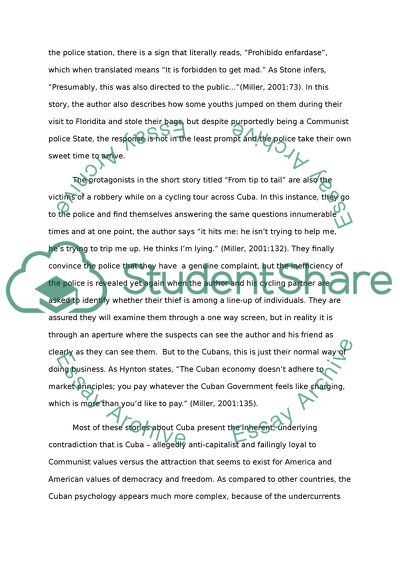Cite this document
(Cuba Analysis: USING THE BOOK: Travelers' Tales Cuba: True Stories : Book Report/Review, n.d.)
Cuba Analysis: USING THE BOOK: Travelers' Tales Cuba: True Stories : Book Report/Review. https://studentshare.org/culture/1558721-cuba-analysis-using-the-book-travelers-tales-cuba-true-stories-cross-cultural-psychology
Cuba Analysis: USING THE BOOK: Travelers' Tales Cuba: True Stories : Book Report/Review. https://studentshare.org/culture/1558721-cuba-analysis-using-the-book-travelers-tales-cuba-true-stories-cross-cultural-psychology
(Cuba Analysis: USING THE BOOK: Travelers' Tales Cuba: True Stories : Book Report/Review)
Cuba Analysis: USING THE BOOK: Travelers' Tales Cuba: True Stories : Book Report/Review. https://studentshare.org/culture/1558721-cuba-analysis-using-the-book-travelers-tales-cuba-true-stories-cross-cultural-psychology.
Cuba Analysis: USING THE BOOK: Travelers' Tales Cuba: True Stories : Book Report/Review. https://studentshare.org/culture/1558721-cuba-analysis-using-the-book-travelers-tales-cuba-true-stories-cross-cultural-psychology.
“Cuba Analysis: USING THE BOOK: Travelers' Tales Cuba: True Stories : Book Report/Review”. https://studentshare.org/culture/1558721-cuba-analysis-using-the-book-travelers-tales-cuba-true-stories-cross-cultural-psychology.


